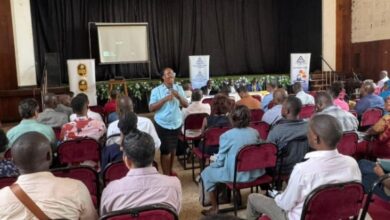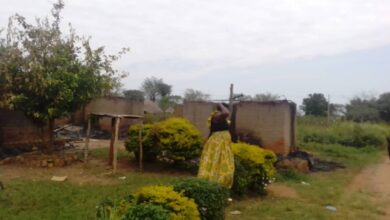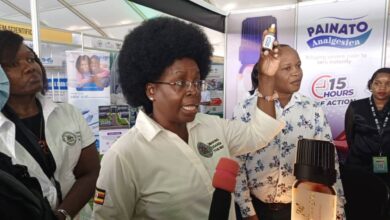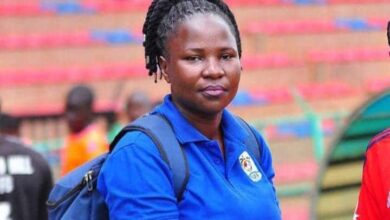Greater Nebbi community charts path to constructive development
Key solutions include fostering effective leadership, building and sustaining unity, forging strong linkages, and prioritizing issues requiring immediate action.
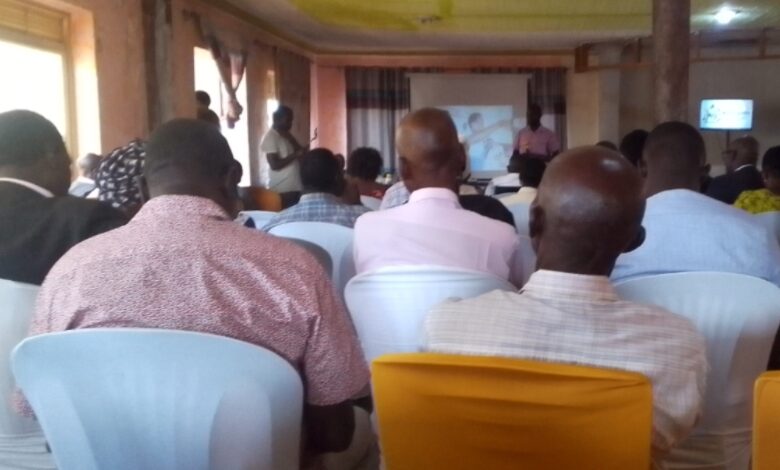
Nebbi: In a determined effort to foster development in the West Nile districts of Zombo, Nebbi, and Pakwach, the Greater Nebbi community has launched the “Greater Nebbi Development Agenda.” This initiative outlines key strategies to drive holistic development across the region.
During a consultative meeting held at Daudi Cotts in Paidha Town Council on Saturday, January 18, 2025, hundreds of community members gathered to address pressing challenges hindering progress.
The forum identified critical issues related to leadership, unity, and partnerships, and proposed actionable solutions to overcome these obstacles.
Key solutions include fostering effective leadership, building and sustaining unity, forging strong linkages, and prioritizing issues requiring immediate action.
The engagements, which are being conducted on a rotational basis, began last week at Leosim Motel in Nebbi Municipality. Discussions highlighted persistent issues such as poor resource management especially of Okoro coffee, Ker Alur, and the Tea Project along with mistrust, tribal disunity, and political inefficiencies.
Emilio Odongo, president of the Forum for the Development of Greater Nebbi and one of the initiative’s architects, urged the community to leverage the wisdom of influential elders to lobby for development, emphasizing the importance of unity.
“Elders are elders; homes without elders are doomed. Members of Greater Nebbi, let us hold hands, stop quarrelling, and take this matter seriously,” Odongo stated.
He also applauded government programs like Operation Wealth Creation and urged local leaders to provide accountability for the seedlings previously distributed to farmers.
The private-sector-led forum also identified critical issues such as: limited bargaining power, weak connections to decision-makers, high youth unemployment, poor production and marketing practices, lack of business support and an unproductive mindset
Former Nebbi District Education Officer Kura Vasco highlighted the low educational attainment in the region, pointing out the poor state of schools and the low completion rates at primary, secondary, and university levels.
Marshall Alenyu, Jonam County MP aspirant, advocated for deliberate policies to support elders, unity, and local businesses. He emphasized the importance of electing leaders with tangible results.
Retired Rev. Canon Chris Onyuthi called for prioritization and questioned the influence of elders over leaders who often rely on money to secure positions. He also stressed the need for accurate data to guide decision-making and urged leaders to present community challenges to the government transparently.
Binwengi Nasis, Zombo District Workers’ Councillor and Secretary of Finance, raised concerns over high school dropout rates and called for a robust school retention campaign.
Zombo District Youth Chairperson Amos Jacan emphasized the importance of corporate social responsibility from organizations operating in the region to empower the community.
LCIII Chairperson of Pakwach Town Council, Warom Patrick, advocated for prioritizing tourism to transform Pakwach into a tourism hub, urging technocrats to include this goal in Uganda’s National Development Plan IV.
Speaking virtually, Dr. Sam Orach encouraged the community to focus on self-driven initiatives and prioritize perennial farming of crops like matooke, coffee, Hass avocados, and cocoa.
Opio Godfrey Onentho, Chairperson of the Avocado Growers Society in Zombo District, decried the high levels of poverty in northern Uganda, citing poor leadership and selfish interests as significant barriers to development.
Elizabeth Nega, Zombo Women MP aspirant, called for increased community awareness, describing greed and selfishness as key hindrances to development.
Vincent Okaba, proprietor of Rock Global Oil Company, stressed the importance of focusing on specific priorities and finding sustainable solutions.
A civil servant highlighted the need to revive cooperative societies, enhance value addition to exports, and capitalize on the region’s fertile land.
Juliet Neguwon, proprietor of Kwan Yabuwang, emphasized the need for mindset change to drive sustainable progress.
The forum plans to hold its next engagement in Pakwach District at Global Village. The initiative aims to unify efforts from the private sector, educational and religious institutions, cultural organizations, and civil society to address Greater Nebbi’s developmental challenges effectively.
Do you have an advertisement or article you want to publish? Mail us at theugreports@gmail.com or WhatsApp +256394700683.



